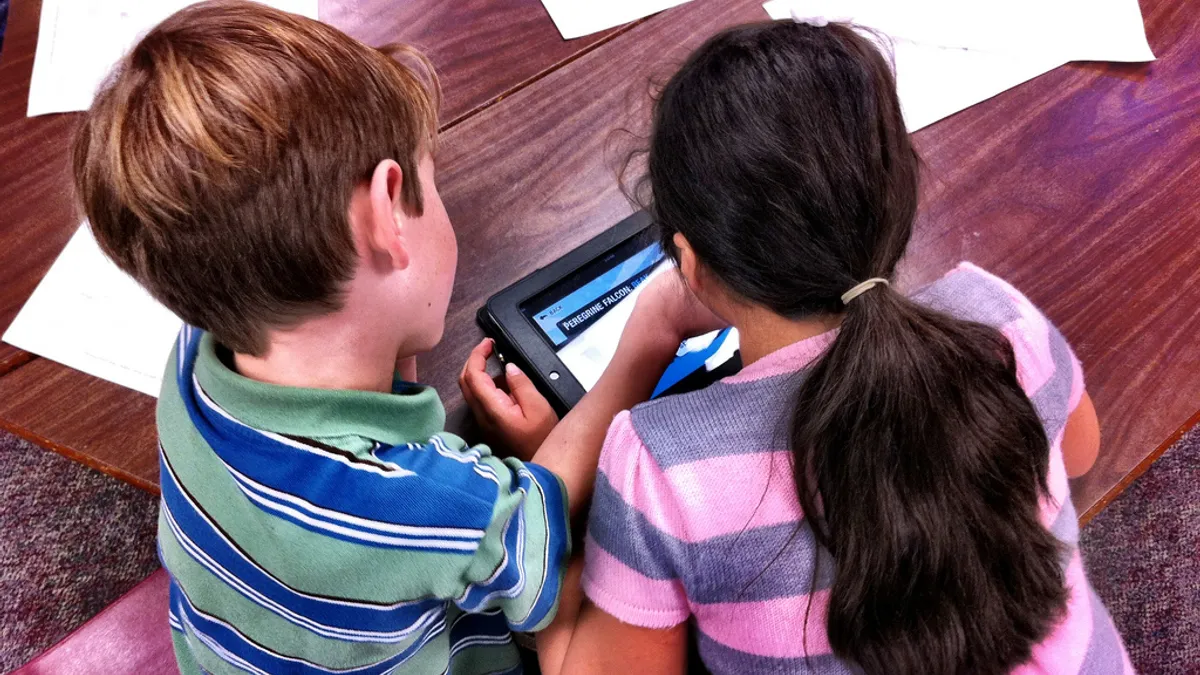Dive Brief:
- The proliferation of ed tech devices and platforms in schools can better facilitate efforts to impart social-emotional learning in ways that can often be easily overlooked, according to EdTech: Focus on K-12.
- One example provided for how to use tech to build cross-cultural empathy and compassion is the use of videoconferencing platforms like Skype to connect students with other students from around the world, even for things as simple as saying "Hi" or sharing projects.
- Additionally, the use of tech necessitates regular reminders that another person is on their own device at the other side of an interaction and that cyberbullying can have very real emotional consequences for that person. Material from context filtering software provider ReThink's website also notes that adolescents change their minds 93% of the time when given the opportunity to think twice about a choice.
Dive Insight:
Social-emotional learning's demand has been on the rise in recent years, and it's arguably more important than ever. The influx of tech devices into schools and the amount of work that has gone digital has presented more scenarios in which cyberbullying can occur. According to a 2016 report from the Cyberbullying Research Center, 33.8% of students age 12-17 have been victims of cyberbullying, making digital citizenship lessons a critical component of any SEL or device program.
The modern political atmosphere has, if anything, highlighted the need for more compassion and understanding between people with different cultural backgrounds and life experiences. That can begin in the classroom at any grade level by teaching students how to discuss a topic while considering one another's viewpoints and personal experiences, and without shouting each other down.
Additionally, those digital citizenship lessons can help students understand how to discern what is or isn't real amid a rise in awareness around "fake news" since the 2016 election season. Developing that level of critical thought will serve students well into their adult lives, and can also fortify the foundation that supports empathy and compassion.







 Dive Awards
Dive Awards





